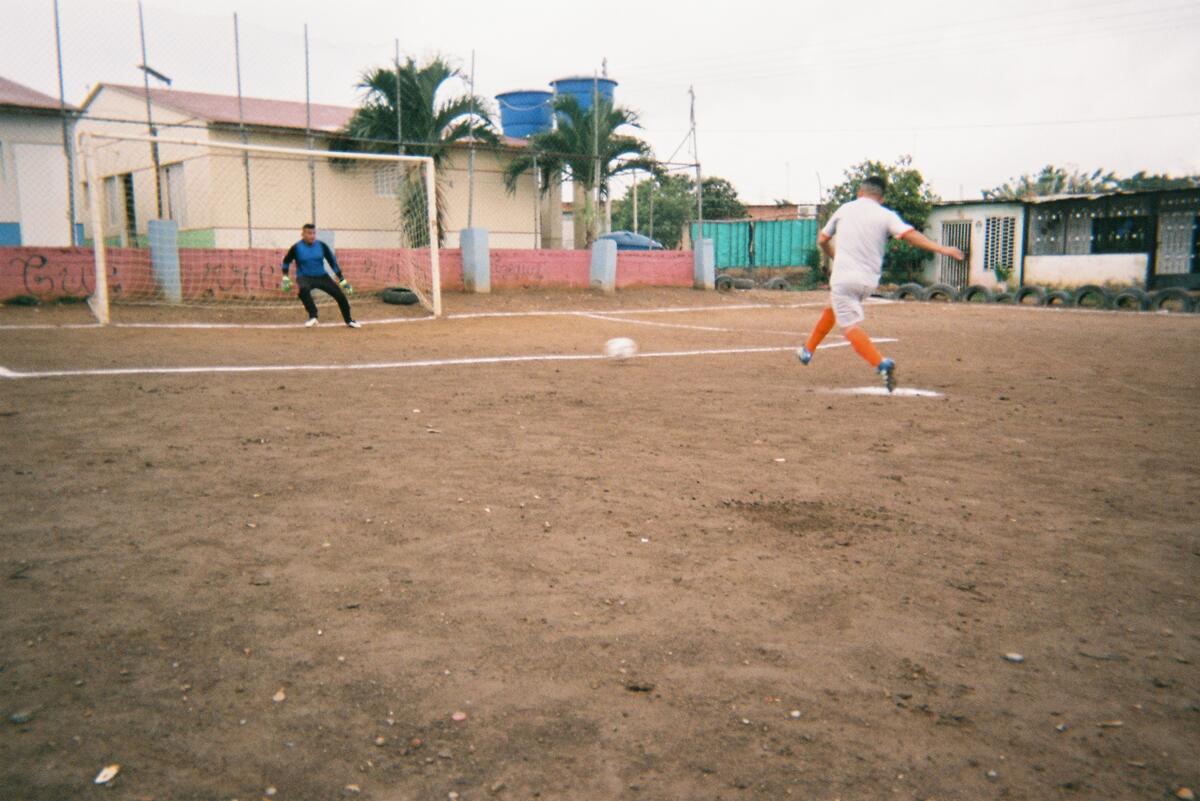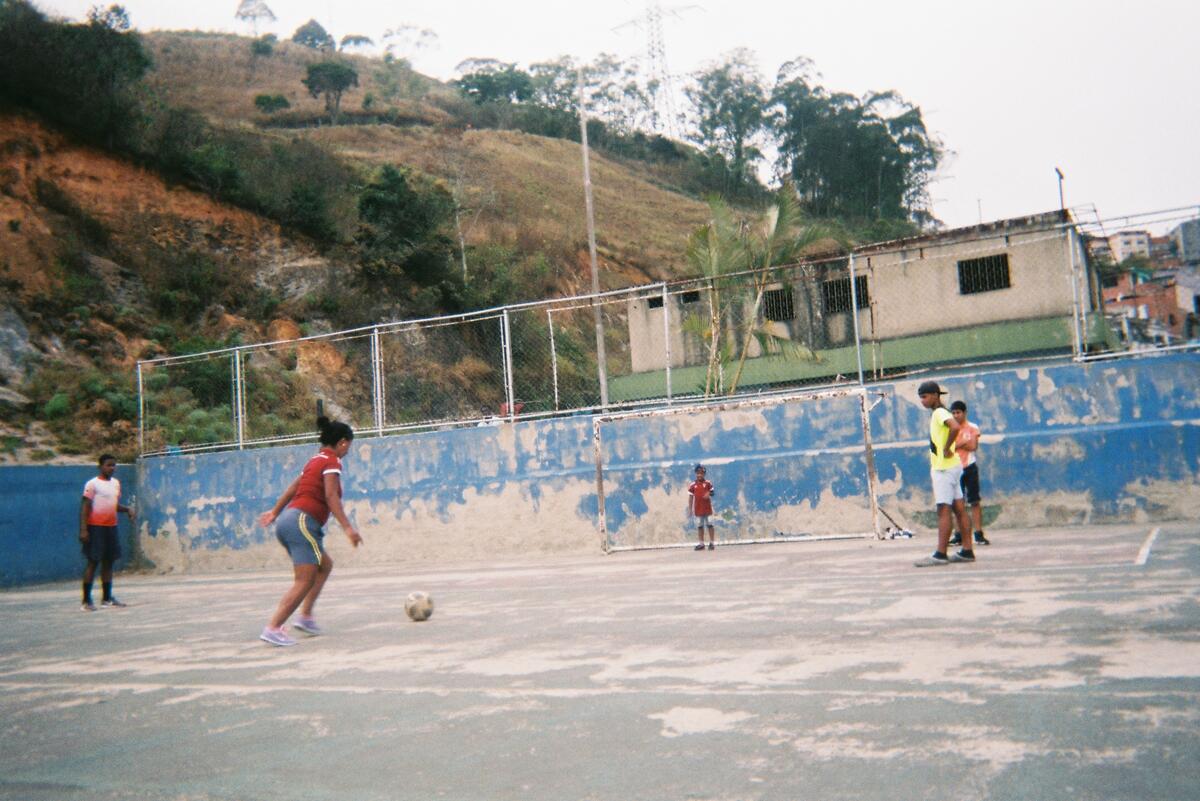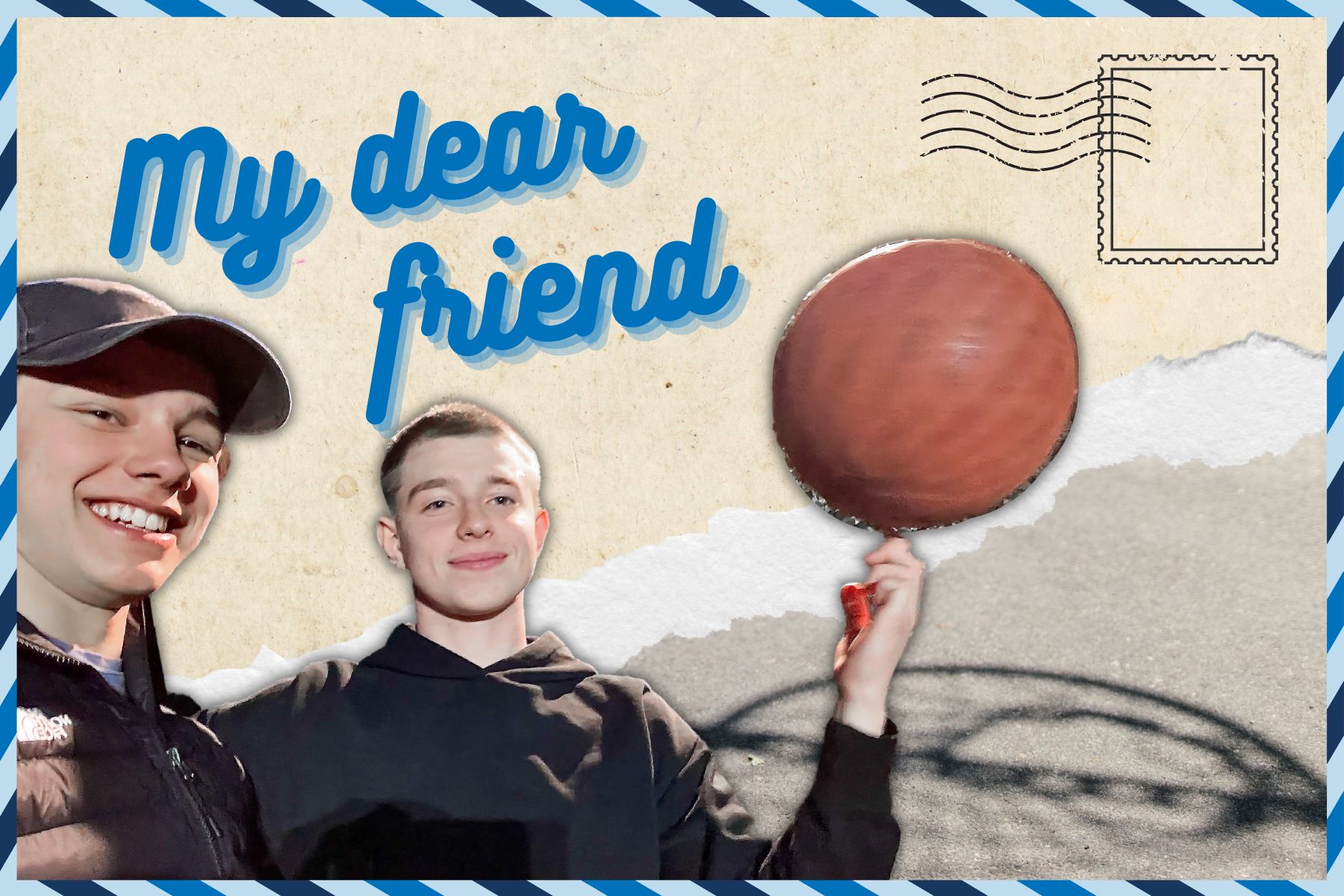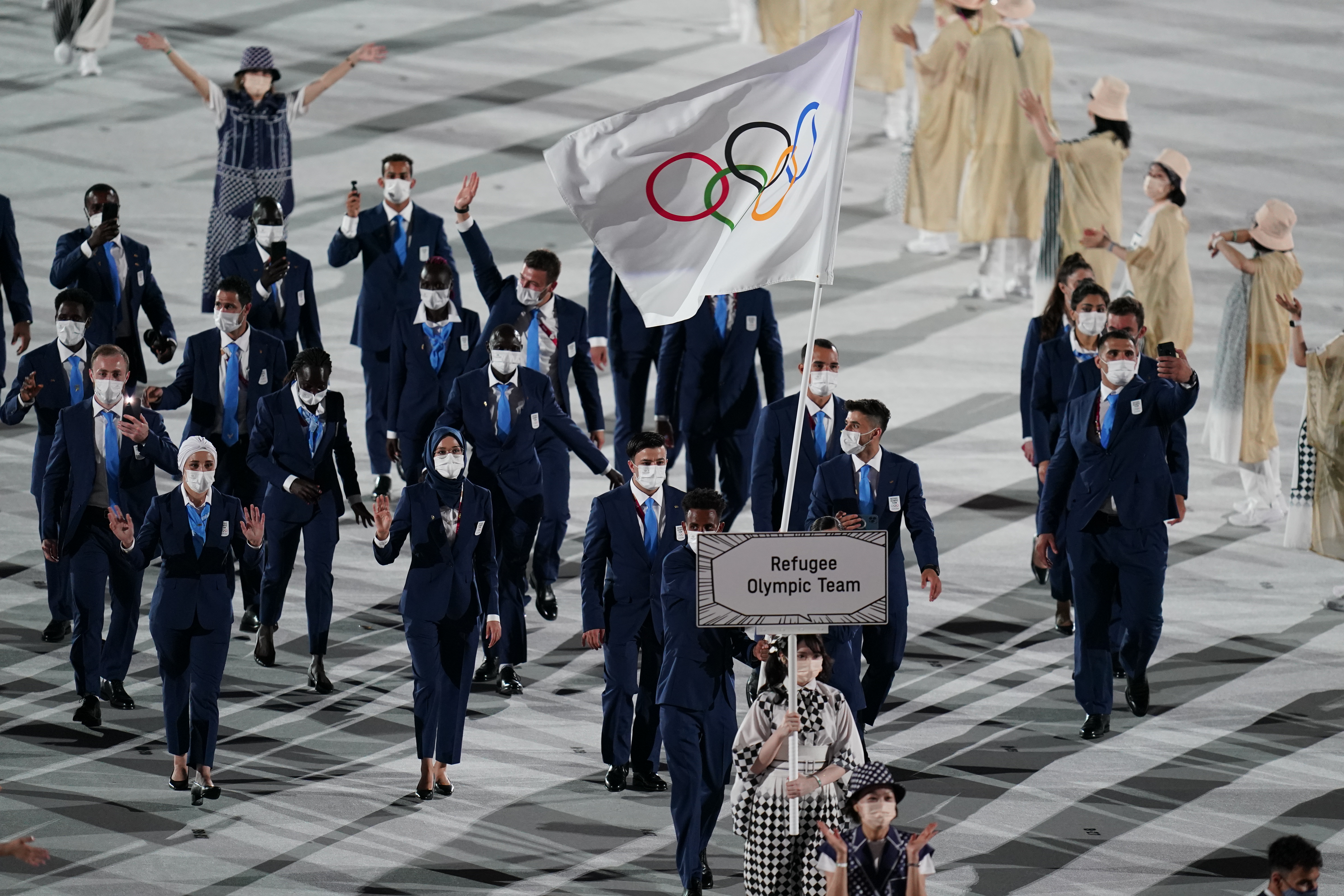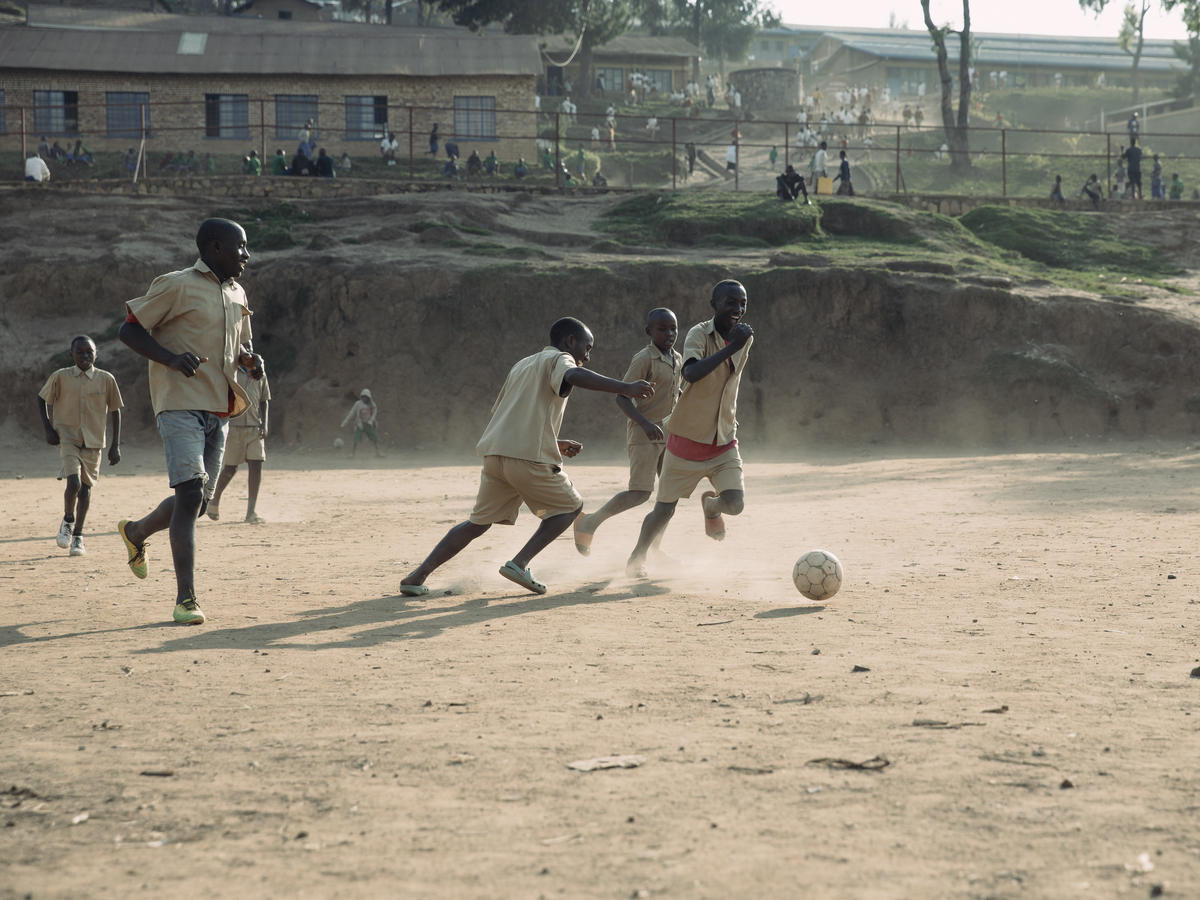Football helps displaced Serbian boy forget his handicap
Football helps displaced Serbian boy forget his handicap

TRNBAS COLLECTIVE CENTRE, Serbia, July 16 (UNHCR) - Slobodan Simic was born with only one arm, but the 17-year-old Serb has found a surprising way to get round his physical handicap and adjust to life as a displaced person.
Slobodan simply loves football and, with the help of UNHCR and its corporate partner Nike, he is getting to live his dream of playing the game with a proper ball that he can call his own. That might not sound like much to millions of privileged children around the world, but they have never had to flee their homes and try to start a new life in a strange place with little money.
The Simic family - Slobodan and his mother, father, older brother and sister-in-law - used to live in the town of Obilic in central Kosovo. But in 1999 they fled to Serbia when NATO airstrikes forced the Yugoslavian government to withdraw its troops from the territory, officially a province of Serbia but now administered by the United Nations.
Today, their home - and that of some 220 other displaced people from Kosovo and nine refugees from Croatia - is this collective centre located near the central Serbian city of Kragujevac. Extra accommodation blocks were built in the former children's holiday camp to help cope with the influx of displaced people from 1999 while UNHCR and several aid agencies have been helping the inhabitants in various ways.
But while they have a roof over their heads, life is still difficult for the Simic family and their neighbours in an economically depressed area. The head of the family and sole breadwinner, 47-year-old Sinisa, earns a bit of money from seasonal work, but after paying for the basics he has nothing left for leisure activities and sports.
The family has also long been preoccupied with trying to find a suitable prosthetic for Slobodan, who was born without his right arm. UNHCR and its partners, the local Sigma Plus and the Danish Refugee Council, have been helping in this quest, but the results have not been satisfactory to date.
Slobodan, meanwhile, discovered a liking and a talent for football and he has been playing with a local club for several years. It was a way for the handsome teenager to cope with his handicap and mix with his contemporaries.
But many people did not realize quite how good he was until the day that UNHCR brought its ninemillion.org campaign to Trbnas in late June as part of an effort to open up educational and sports opportunities for uprooted youth around the world.
The UNHCR visitors had brought five of the distinctive green and yellow Nike balls associated with the campaign. "Would it be possible for me to have one of them," Slobodan asked the visitors.
A cloud passed over his face when it was politely explained that the balls were for collective use by all the children in Trbnas, but he did not complain.
He did not have to. The tenants of Trbnas unanimously agreed that Slobodan should be the keeper of the balls, whereupon he gave a dazzling display of footwork in celebration. Nobody seemed to notice that he was missing a limb.
"The ball is more than good, as a matter of fact I have never used a better ball," he said, referring to the colourful sphere of rubber that was devised by Nike for use in harsh refugee camps. "The bounce, shape, balance and size of the ball are just perfect for me. I would have done better if I only had the right sports shoes," he added with a laugh.
Slobodan and his family still face some stiff challenges ahead, but he has shown that a lot can be achieved with hope, determination, a willingness to learn and some help from friends and organizations like UNHCR.
Serbia hosts up to 100,000 refugees from Croatia and Bosnia and Herzegovina and some 200,000 displaced people from Kosovo.
By Darko Madzarevic and Ivan Jovanovic in Trnbas Collective Centre, Serbia

